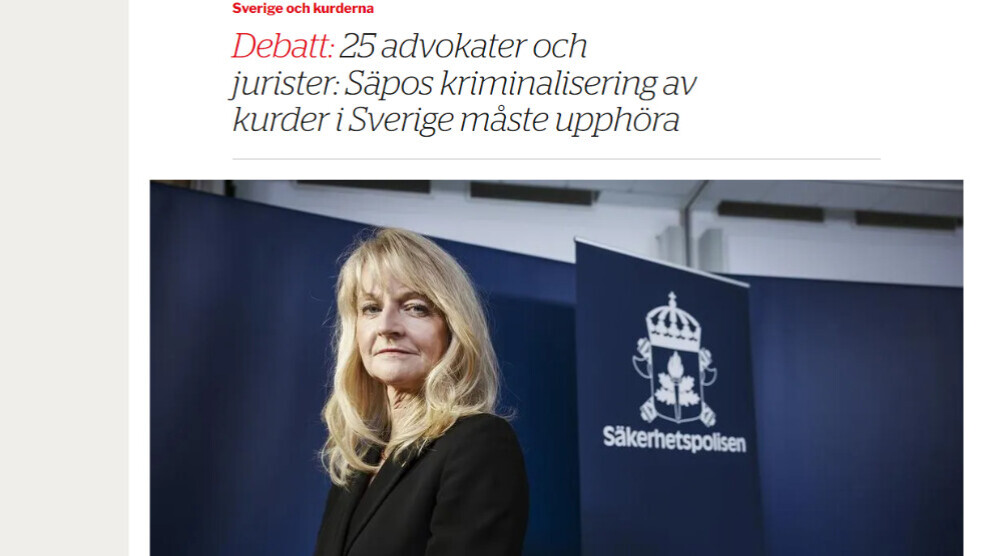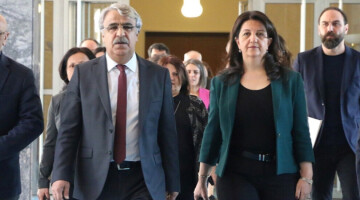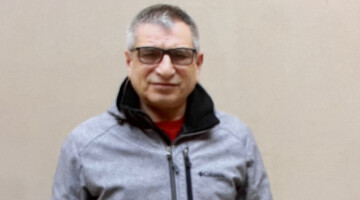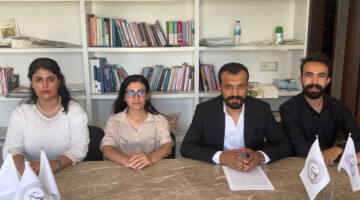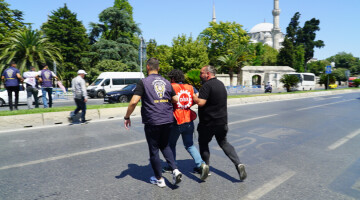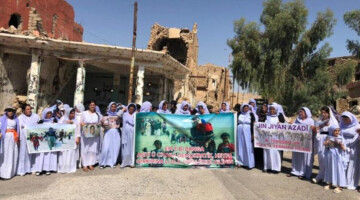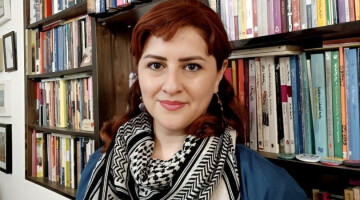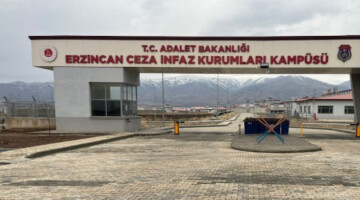25 lawyers and legal professionals in Sweden made a written statement on the criminalisation of Kurds by the Swedish secret service, Säpo. The statement said that Säpo's derailed work is a "Kafka process*" that has no place in a modern legal system or in a democratic country, and emphasised that their primary duty is to "protect human rights and fundamental freedoms".
The full statement published on etc.se reads as follows:
There is a political persecution of Kurds in Sweden, with the security police at the forefront, since international relations with Turkey have become more important in foreign policy, backed by the Swedish government.
In recent years, the Swedish Security Service has begun to criminalise Kurds, and it is our view that the work of Säpo has gone off the rails. The Kurds' political position and activities, for which the same Kurds were initially granted protection in their new home country, have been classified as "terrorism" by Säpo for some years, an assessment that was later upheld by decision-making bodies.
In one high-profile criminal case (B 1069-23 Stockholm District Court), and the related preliminary investigation, an interrogator asks whether there are any lawyers in Sweden who are specifically targeting the PKK. In addition, an individual has been arrested in the company of his lawyer, in the lawyer's company car, on the way to the lawyer's office when the same person ten minutes earlier was in the premises of the Security Police for questioning, which the person had come to voluntarily (Södertörn District Court B 3616-24). In our opinion, being in the company of your lawyer should be covered by the one-room privilege.
The political persecution of Kurds and Kurdish institutions and associations must stop. The broad definition of terrorism adopted by the security police through information exchange with the Turkish security services should be strongly criticised. Turkey is a country that has been condemned several times by the European Court of Human Rights for violations of the Convention. It is also a country that holds thousands of lawyers, journalists and politicians in arbitrary detention.
The developments we have observed in Sweden in recent years are reprehensible
We now see the same grounds used by the Swedish Security Service against the Kurds in Sweden. The development we have observed in Sweden in recent years is reprehensible, and makes us think about what future Sweden is heading towards and what legal system we are slowly but surely accepting in a longer perspective.
The average person may think that since a Swedish authority, and especially the Swedish Security Service, claims something, it must be so. However, according to what we have been able to discern in our daily work in these cases, the Swedish Security Service has the same broad definition of terrorism as Turkey. In Turkey, however, the individual is still allowed to know what they are accused of, regardless of the truthfulness of the claim. In Sweden, in cases handled by the Swedish Security Service, individuals are not even told what they are accused of and the basis for the assessment.
It is a Kafka process that has no place in a modern legal system or in a democratic country. We are now witnessing an open criminalisation but with hidden evidence. Regardless of the fact that the basis for the Security Police's assessments is not reported, we know that these are individuals who sympathise with the Kurdish opposition in Turkey, but according to the Security Police, they are allegedly linked to the PKK.
The situation is again similar to the Turkish legal system where every Kurd who wants to claim his identity is considered a terrorist and a PKK sympathiser. According to the Security Police, these alleged links to the PKK are considered a threat to national security and individuals are not allowed to extend their residence permits and are deported. Furthermore, Kurdish organisations have their bank accounts blocked, young Kurdish job seekers do not proceed in the work permit process after security clearance, and lawyers are beginning to be targeted.
The question of the terrorist classification is a topic in itself, but it is worth mentioning that the PKK has not posed a security threat to Swedish interests and security, nor has it been claimed by Swedish authorities, regardless of the veracity of these alleged links to the PKK.
It is also worth mentioning in this context that in 2017, after an 11-year legal process, the Belgian court concluded that the PKK cannot be considered a terrorist organisation.
The assessments of the security police that individuals with alleged PKK links are a threat to national security therefore appear to be contradictory. Only a few years ago, the Kurds were one of the most important actors against the advance of ISIS and were internationally acclaimed.
Instead of suspecting and criminalising the Kurds, Sweden should support a new peace process between the Kurds and Turkey. Criminalising the Kurds and their institutions does not solve the problem, but becomes the problem.
The work of the Swedish Security Service can be likened to registering opinions. Everyone is guaranteed freedom of expression, which includes the right to express thoughts and opinions. Everyone is also guaranteed freedom of assembly, demonstration and association, which are our fundamental rights and freedoms.
The work of the security police undoubtedly involves registering the opinions and activities of Kurds in view of the questions that individuals have subsequently said they received from the security police and which have been publicly published in the above-mentioned preliminary investigation. In addition, these individuals are put in fear of not disclosing what has been revealed with reference to a confidentiality clause.
As lawyers and legal professionals, our primary task is to zealously protect the rights of our clients. We also have a special position in society and have a special responsibility to safeguard human rights and fundamental freedoms covered by the 1950 European Convention for the Protection of Human Rights and Fundamental Freedoms. In their activities, lawyers must endeavour to uphold human rights and freedoms. The work of the security police against Kurds and Kurdish institutions is a violation of these rights and freedoms and must therefore be stopped.

